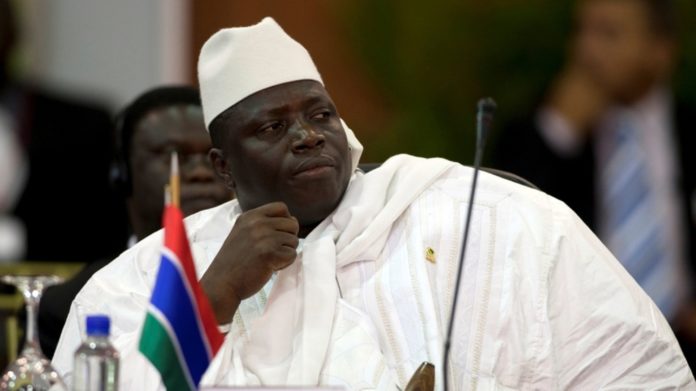By Nelson Manneh
Twenty-seven protesters arrested for staging an unauthorized protest demanding greater transparency in the disposal of assets seized from former President Yahya A.J.J. Jammeh were released on Saturday on self-bail after spending two nights in police detention.
The arrests occurred Thursday at Arch 22 in Banjul, where members of the civic movement Gambians Against Looted Assets (GALA) attempted to march in defiance of a police permit denial. The group, comprised primarily of young citizens, had planned to deliver a petition titled “Urgent Call for Transparency and Accountability in the Sale of Former President Yahya Jammeh’s Assets” to the Ministry of Justice and the Attorney General’s Chambers.
The petition cited both Section 25(1)(f) of The Gambia’s 1997 Constitution, which guarantees freedom of assembly, and The Access to Information Act of 2021 as the legal basis for their demands.
In a brief interview following his release, protester Kemeseng “Kexx” Sanneh said the group insisted on being released on self-bail, rejecting initial police requests to provide external sureties. “We were not tortured while in detention, but the police wanted us to find people to bail us. We refused and requested for self-bail, which they later accepted,” Sanneh said. “We are only asking for transparency and accountability. We want the government to tell us who bought Jammeh’s properties and for how much.”
The protesters were reportedly held at various police stations within the Kanifing Municipality and West Coast Region, questioned, and formally charged. However, Sanneh noted that the activists refused to sign the charge sheets and declined to provide statements to investigators.
Their protest followed the publication of a searing investigative report by The Republic newspaper, titled “The Assets of Gambia’s Former Dictator Go for a Song.” The article alleged that assets confiscated from Jammeh—ranging from livestock to luxury vehicles and agricultural machinery—were sold below market value, with some sales reportedly benefiting individuals with ties to current government officials.
The report has triggered widespread public anger and political backlash, with civil society groups and opposition parties echoing calls for a full accounting of Jammeh’s forfeited assets. It also prompted an extraordinary session of the National Assembly, scheduled for May 14 and 15, to consider a motion establishing a special parliamentary inquiry into the matter.
GALA organizers have said their protest was peaceful and constitutionally protected. “We believe our demands are legitimate. We are citizens who deserve to know where public wealth has gone,” said one protester who asked not to be named.
The incident adds to growing concern over shrinking civic space in The Gambia, particularly as the country navigates the post-Jammeh transitional justice process. Although the police have not publicly explained their refusal to grant a permit for the protest, critics say such denials stifle legitimate dissent and threaten the democratic gains made since Jammeh’s 2017 ouster.
The Ministry of Justice has responded by providing the list. The protesters have reunited with their families.


















